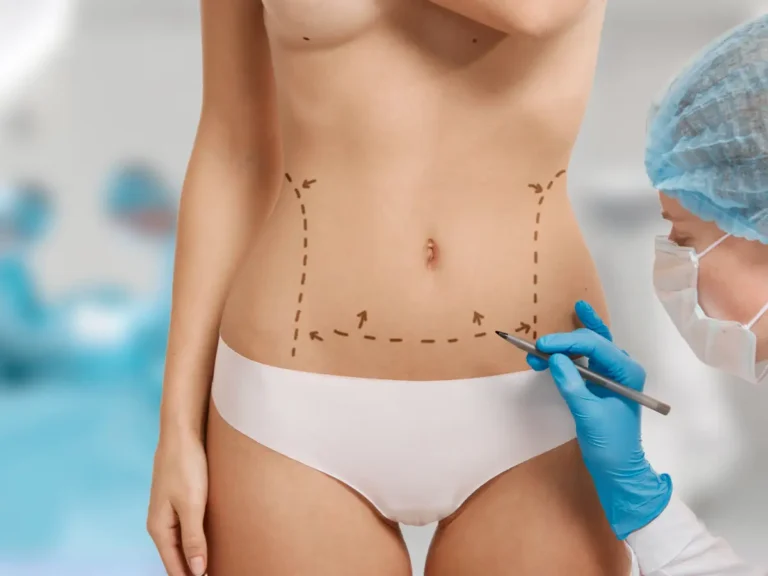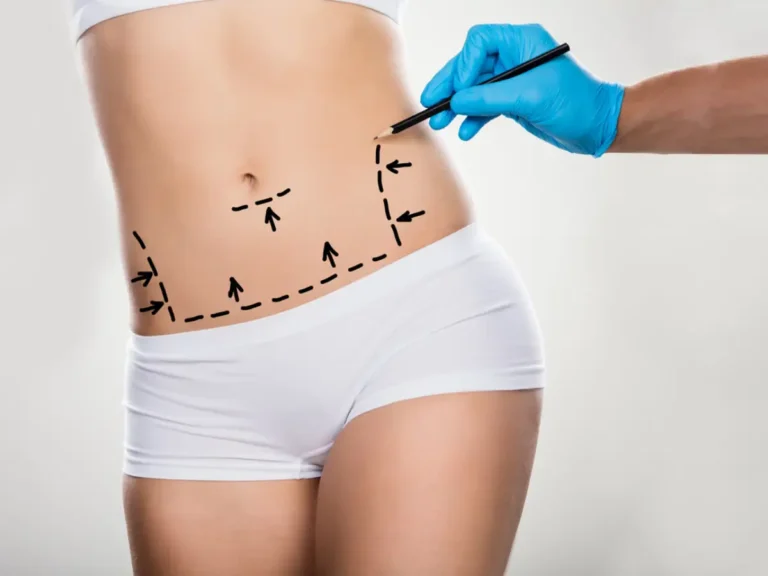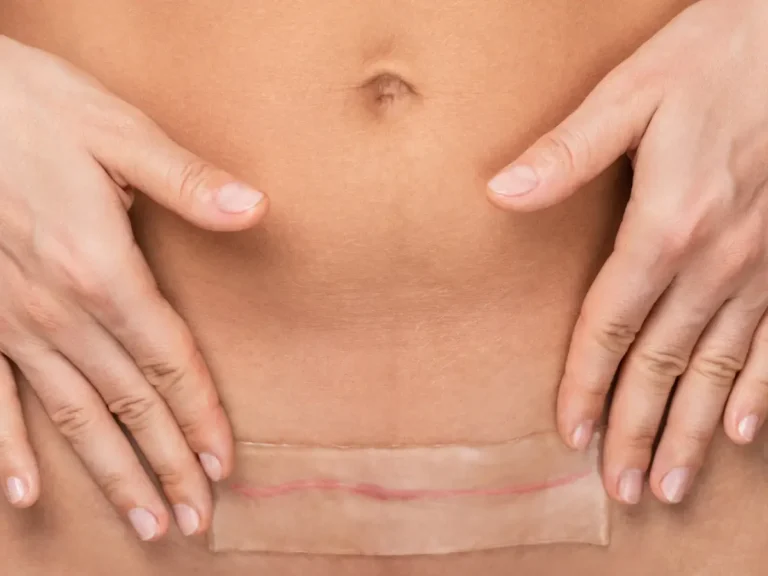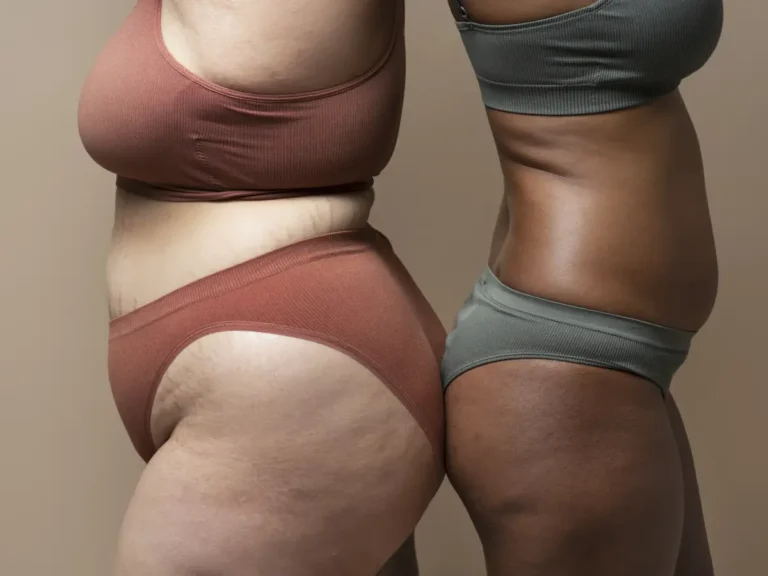A tummy tuck is one of the most popular cosmetic surgeries in the world. But that doesn’t mean it’s a simple procedure with no long recovery period. As with any surgery, the skill and experience of your plastic surgeon is only part of the equation that ensures the success of your results. How well you adhere to your post tummy tuck care instructions can play a pivotal role in the final outcome of your tummy tuck procedure.
If you’re considering having excess skin removed through a tummy tuck, here’s everything you need to know about tummy tuck recovery and tips to make it easier!
Timeline for healing after tummy tuck
Week 1:
post tummy tuck will stay in the ward all night. The staff will provide you with effective pain relief and monitor your recovery. You will be able to go home immediately the day after surgery. You can shower daily without getting close to the bandages.
Week 2:
The pain and swelling will gradually begin to decrease. You will need to wear compression garments day and night to speed up your recovery. After two weeks, you may feel ready to return to work. However, it will take longer for you to feel fit and ready to return to more physically demanding work.
Week 3:
The pain, swelling and bruising will continue to decrease. You can gradually resume light exercise. However, avoid heavy lifting, abdominal exercises and weightlifting exercises that can put pressure on the wound.
Weeks 4 and 5:
Individual recovery varies, but most patients can continue to increase their exercise and activity. Once your pain has subsided and you feel able, you may be able to return to more active work.
Week 6:
You should feel stronger and fitter and can begin to do more intense exercises including abdominal exercises and weight lifting. You can also stop wearing compression garments at this point. You should feel back to normal, but some mild swelling may remain. The final results will be visible between 12 weeks and six months after your procedure.
Tips for a smooth tummy tuck recovery
Tips for the first three days
· Don’t stay in bed all day, as this can increase your risk of blood clots. Make sure to get up and walk around the house.
· Stay slightly bent at the waist to avoid putting pressure on your incisions.
· Eat a light, low-sodium diet to reduce swelling and inflammation.
· Drink plenty of water to help flush your system and aid healing.
· Wear compression garments as they will aid healing and help you achieve your desired shape.
Week 1-3 Tips
· Begin gently massaging your incision sites and midsection two weeks after surgery to promote healing.
· Continue wearing compression garments under the supervision of your plastic surgeon.
· Start taking short walks several times throughout the day to increase blood flow and circulation.
Month 1-3 Tips
· Maintain a healthy, balanced diet and stay within your ideal weight range to protect your results.
· Avoid exercises that target your abdominal muscles, such as weightlifting.
Explore Similar Health Concerns: Panniculectomy vs Tummy Tuck
Best practices for tummy tuck post-op care
There are some routine things you should take care of as you recover after surgery. Paying close attention to these tasks can help reduce or prevent pain.
Compression garments: After surgery, you will be wrapped or given compression garments to wear. Compression garments will help reduce swelling, support your abdomen, and promote proper healing. You should expect to wear them for two weeks to two months, depending on how quickly you heal.
Incision care: Surgical dressings or bandages will be placed over the incision area. You will be given instructions on whether, how often, and how to change these dressings. Keep the wound clean and handle it gently to avoid infection or bleeding.
Drainage care: After a tummy tuck, temporary tubes will be inserted under the skin to drain excess fluid from the surgical site.
Antibiotics: You may be given a prescription for medication to apply to the surgical site and/or take by mouth to reduce your risk of developing an infection after surgery.
Managing pain during tummy tuck recovery
If you have pain after surgery, you may need treatment while you recover from your tummy tuck. Options include:
Available medications: Many surgeons recommend taking ibuprofen or naproxen 24 to 48 hours after surgery if there is no evidence of bleeding.
Prescription medications: Long-acting narcotic pain relievers are often prescribed because they don’t cause bleeding. However, narcotics can cause constipation at low doses; high doses can cause breathing and heart problems.
Pain pump: If you have severe nausea and can’t take medication by mouth, a pain pump — a device that delivers medication directly into your body through a tube that’s inserted — may be an alternative.
How to reduce swelling after tummy tuck
Although swelling after a tummy tuck is completely normal and will go away on its own in time, there are some things you can do to help during your recovery:
· Make sure you get plenty of rest and elevate your lower legs as much as possible.
· Keep your incision site clean to reduce the risk of infection and inflammation.
· Wear compression garments as instructed by your surgeon.
· Stay hydrated.
· Eat a light, low-sodium diet to reduce fluid retention.
· A very light walk for the first few weeks can help reduce swelling and promote circulation.
FAQ
How to care for belly button after tummy tuck
To prevent and manage navel infection after tummy tuck surgery, it is important to carefully follow post-operative care instructions. This may include keeping the wound site clean and dry, taking prescribed antibiotics, and watching for any signs of infection.
Is it safe to push during bowel movements after tummy tuck
It is normal to strain gently to start a bowel movement. Don’t be afraid to do this after surgery. You can take a stool softener so that you do not have to strain too much during a bowel movement.
When can I take a bath after tummy tuck surgery
Patients should not immerse their abdomen in water for up to six weeks after tummy tuck and liposuction. Take a shower to gently wash the area with lukewarm water.
Exercises to avoid after tummy tuck
During the initial recovery phase, it is essential to avoid exercises that strain the abdominal muscles, such as sit-ups and weight lifting.
Book Your Consultation
Are you interested in learning more about tummy tuck surgery? If so, consider scheduling a free consultation with one of the board-certified plastic surgeons at Medconsulto Plastic Surgery Clinic.




